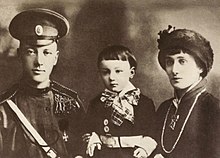The information gathered in the 1990s in Russia’s Books of Remembrance about “victims of political repression” mainly derives from the records of the Soviet police and security services.
Even that thin evidence provides glimpses of human suffering that are shocking both in scale and persistence. These examples from the 1930s begin with the forced collectivization of agriculture and end with the Great Terror.
SHOT
Andrian Avdeyenko, an independent peasant farmer, was shot in 1931 (aged 29). He was born and worked in the Yedogon village, Irkutsk Region. Arrested in April 1930, he was charged under Article 58 with “armed uprising” and “the organisation of counter-revolutionary activities”. The OGPU troika sentenced him to death and on 22 January 1931 Avdeyenko was shot in Irkutsk.
Daniil A. Yepifantsev (1889-1933 shot) did not resist collectivization and joined a collective farm (kolkhoz). Nevertheless, he was arrested in 1932 and shot the next year, leaving behind a 41-year-old wife and seven children aged 2-17.
Continue reading

